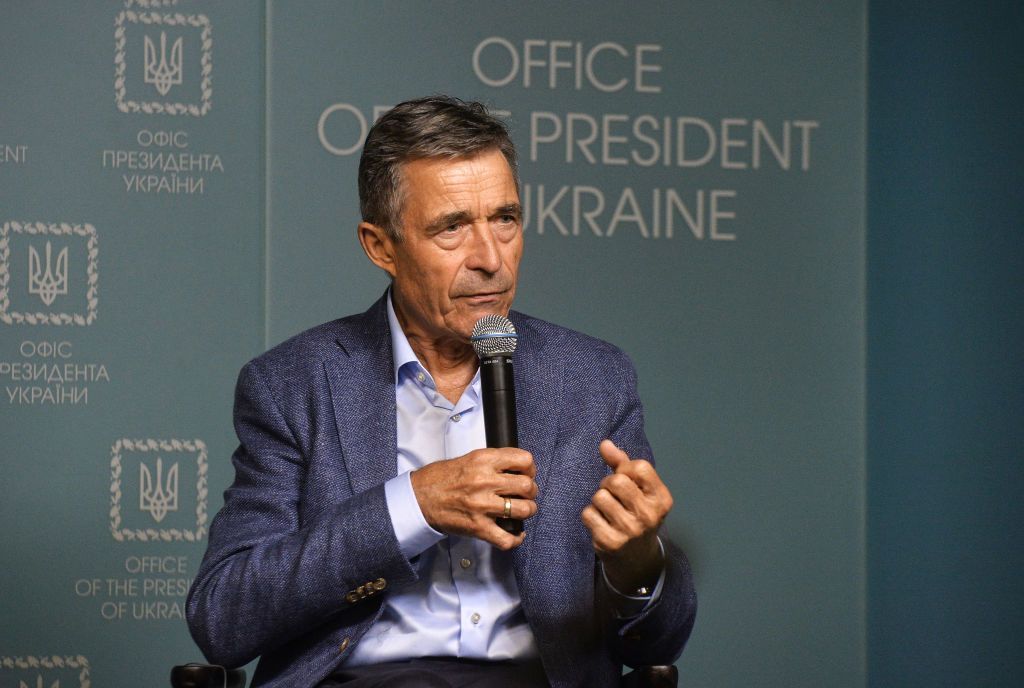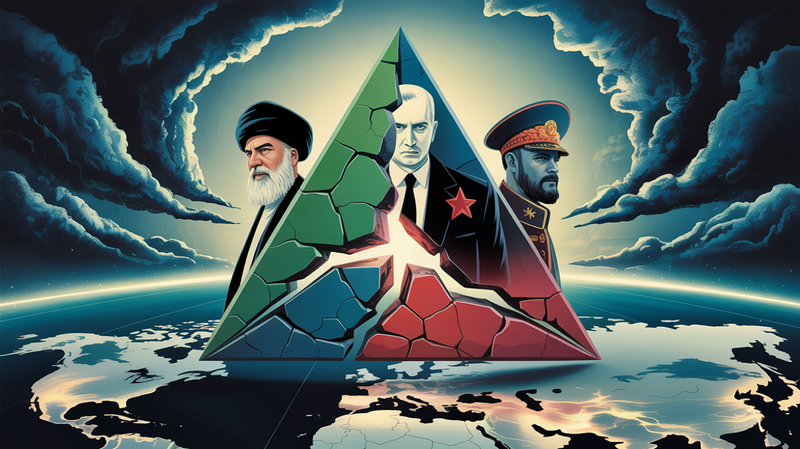The Inevitability of Peace: Anders Fogh Rasmussen Advocates for Swift Integration of Ukraine into NATO
Anders Fogh Rasmussen, the former Secretary-General of NATO and erstwhile Prime Minister of Denmark, has emerged as a bold proponent of Ukraine's swift induction into NATO. In a comprehensive interview, he discussed the potential of this integration and its implications for Europe's peace and stability. Rasmussen&

Anders Fogh Rasmussen, the former Secretary-General of NATO and erstwhile Prime Minister of Denmark, has emerged as a bold proponent of Ukraine's swift induction into NATO. In a comprehensive interview, he discussed the potential of this integration and its implications for Europe's peace and stability.
Rasmussen's advocacy stems from his conviction that Ukraine's alliance with NATO would significantly strengthen the collective defense organization. He bases this belief on Ukraine's recent military resilience and argues that the whole alliance would benefit from Ukraine's participation.
The backdrop to this conversation is the continuous tension between Ukraine and Russia. Some critics worry that Ukraine's NATO membership would provoke Russia and cross Putin's defined red lines. Rasmussen, however, dismisses these fears as irrelevant. He firmly argues that NATO's expansion is not subject to Putin's approval or veto. As a collective defense alliance, NATO remains open to any nation whose government and parliament seek membership, he stated, citing the recent examples of Finland and Sweden.
Rasmussen acknowledges Russia's history of ominous threats and hostile actions under Putin's leadership. However, he also points out that NATO member countries have not been the subjects of Russia's aggression. Using this historical precedent, he posits that the prospect of Ukraine becoming a NATO member would likely deter Putin from any potential aggression against the country.
The discussion then shifted to the ongoing conflict in Ukraine. Rasmussen argued against the notion of waiting for the end of the war before admitting Ukraine to NATO. He described such a delay as a strategic mistake with dangerous consequences, as it could inadvertently give Putin the power to postpone Ukraine's NATO membership indefinitely by simply extending the conflict.
Responding to the idea of a partial integration of Ukraine, such as only inducting Western Ukraine into NATO, Rasmussen indicated that, while complicated, it isn't impossible. He drew parallels to the admission of West Germany into NATO in 1955, asserting that such a move could have a stabilizing effect on Europe.
Rasmussen proposed that NATO's Article 5, which details collective defense, could apply to those parts of Ukrainian territory currently under Kyiv's control. This suggestion implies the creation of demarcated zones and may necessitate a "Checkpoint Charlie"-like atmosphere.
Looking towards the future, Rasmussen concedes that the path to membership will be laden with complicated details that can't yet be answered. Nevertheless, he insists that it is crucial to establish a framework now and address fundamental questions, setting a clear path for Ukraine's membership.
Further, he proposes the establishment of a NATO-Ukraine Council to address these details and ensure close political coordination between Kyiv and the western alliance. Rasmussen envisions this council as an entity that would be operational round-the-clock, thereby ensuring continuous dialogue and cooperation.
Rasmussen concludes on an optimistic note, expressing his hope that by pushing these measures at the Vilnius summit, the next NATO summit scheduled in July 2024 in Washington might extend a formal invitation to Kyiv to join the alliance.
While critics view these developments as a potential escalation of the conflict, Rasmussen insists that it is a recipe for peace. Drawing from past lessons, he emphasizes that unclear conditions have led to aggression, as seen in the case of Russia's invasion of Ukraine. He firmly asserts that clear terms regarding NATO membership can restore peace in Europe, urging for swift action rather than indefinite postponement.




